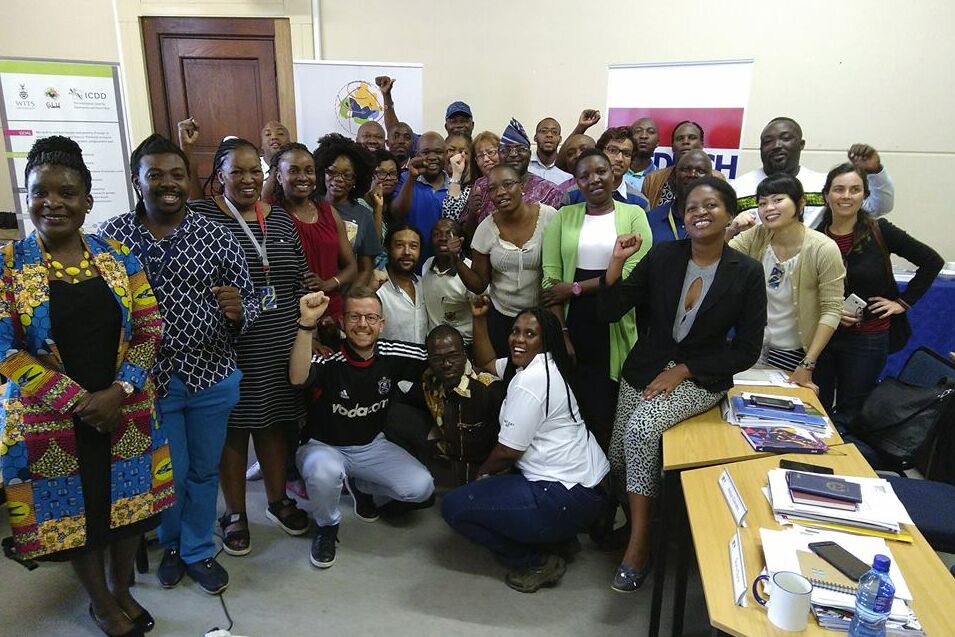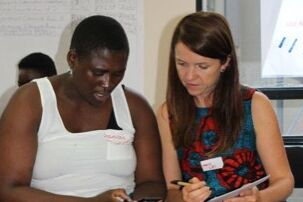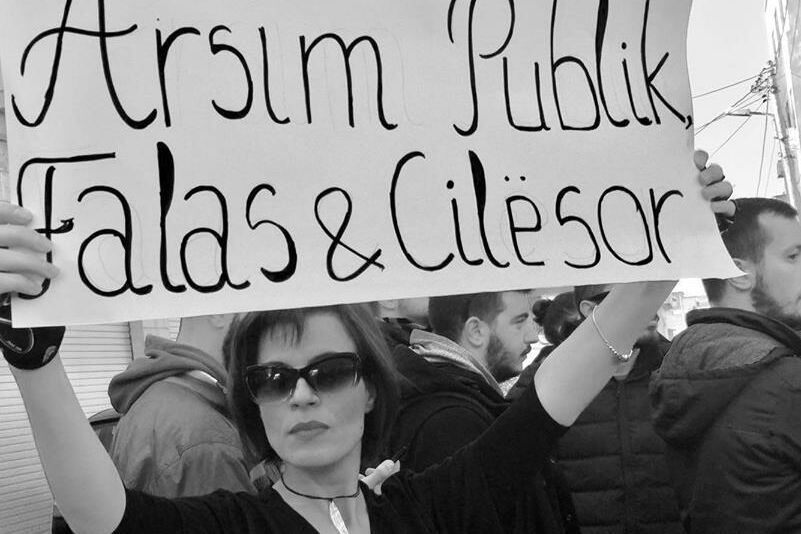Ongoing education is key to active union members
In Sub-Saharan Africa, more than 20 offices of Friedrich-Ebert-Stiftung (FES) undertake programmes in over 30 countries to strengthen trade unions as agents of power for workers and the working class.
The Trade Union Competence Centre of Friedrich-Ebert-Stiftung (FES TUCC), based in Johannesburg, South Africa, plays a special role supporting trade unions and advocacy groups representing workers’ interests in Sub-Saharan Africa, through formal and informal education programmes.
Bastian Schulz heads the FES TUCC. His team took the time to present for readers their distinctive work on education as a continuous and critical element of support programmes for trade unions in Sub-Saharan Africa.
For almost a century now since its founding, FES has worked as an adult education institution to further political education, in Germany and abroad. Workers’ education has been part of this historic mission to this date. How is FES TUCC part of this tradition?
Worker education is a continuous and critical part of the support programmes we provide to trade unions in Sub-Saharan Africa. Our work is mostly of African international nature. It involves co-operation with worldwide trade union structures such as the Global Union Federations, sub-regional trade union structures like the East Africa Trade Union Council (EATUC), and regional structures like the International Trade Union Council (ITUC) Africa.
"Sharing research findings to inform and educate participants on the companies they deal with is the foundation to planning how to organize and prepare for collective bargaining to fight the race to the bottom on the continent."
For example, we’ve supported Global Union Federations (GUFs) to bring together worker representatives and trade union officials operating within multinational corporations in different countries on the continent. At annual network meetings that are convened around the work of multinationals, like Shoprite—the continent’s largest retailer—we share research findings to inform and educate participants on the companies they deal with. This is the foundation to planning how to organize and prepare for collective bargaining to fight the race to the bottom, i.e. the fight for the lowest wages, on the continent.
With our support, regional trade union organizations have built worker education programmes to better prepare union members to participate and influence also the resolution of emerging challenges we face as a society. For example, through our worker’s education programme on climate change, members of unions affiliated with ITUC have been part of national and regional discussions on climate change, allowing them to think about how the future will look for workers and how to mitigate the effects of climate change.
What is the role of continuing education for workers’ organizing, trade union operations and for a successful labour movement overall?
Let me illustrate with an example. One of the most important developments in Africa in recent years has been the growing involvement of China in Africa’s economy. Chinese corporations invest heavily and implement infrastructure projects in Africa such as power stations, dams, roads, bridges, railway lines, etc. These projects involve thousands of workers in the construction work. Trade unions affiliated with the Building and Wood Workers International (BWI) have undertaken huge organizing and collective bargaining programmes within these Chinese projects.
"The model pursued by the FES TUCC and BWI in organizing within the Chinese investment projects has worked very well and is likely to be exported to other regions where BWI and FES cooperate."
In cooperation with BWI, we supported the construction unions in their work, using research, strategic planning workshops, and publications, to foster a strong and vibrant labour movement in the Chinese-supported infrastructure projects in Africa. Through exchanges of information and strategies and joint planning, the network members have built a union membership of 43,000, signed 74 collective bargaining agreements and undertaken 66 strikes, ensuring better wages and working conditions for workers in the Chinese-supported projects. Significantly, the achievements were made without the signing of a Global Framework Agreements (GFA) and without any support from their Chinese counterparts, the All-China Federation of Trade Unions (ACFTU). African affiliates have mostly depended on their capacity for strategic thinking and action for the amazing organizing and collective bargaining outcomes.
The model pursued by the FES TUCC and BWI in organizing within the Chinese investment projects has worked very well and is likely to be exported to other regions where BWI and FES cooperate.
The flagship Global Labour University programme in South Africa, running since 2007, provides postgraduate degree courses (Honours and Masters) specifically tailored to trade union officials and members, mainly from the African continent.
The ENGAGE South Africa Programme, runs annually and is a two-month course for members of unions and labour-support organizations from across the Global South. The aim of ENGAGE is to equip participants with critical analytical skills in a way that they can contribute to progressive pro-labour policy development. The programme consists of modules and daily classes and in addition to this, participants undertake research projects applying a methodology that helps with mapping the power resources of trade unions, i.e. the power research approach (link).
The participants live and work together on campus, building bonds of friendship and work that are important principles of the GLU and ENGAGE—building solidarity between workers, union representatives, organisations and across borders.
Incorporated into the programme is the so called annual TRANSFER Project to ensure transfer of skills and ideas learnt by the ENGAGE participants back to their local organization. Participating African unionists, once they’ve returned home, form research groups made up of members and officials from their union or organization, and with the supervision and guidance of a Wits-based transfer coordination team (all contributors to the ENGAGE Programme), conduct their independent research projects.
What developments in South Africa and Sub-Saharan Africa are raising concerns about the future of the world of work and the role of trade unions? What priority topics for future education programme emerge from these concerns and your work so that trade unionists and labour researchers take the challenges head on?
A key concern is the participation and active engagement of union members: the members are the union! The FES Africa Department in 2015 launched an internal project titled Reform of Trade Union Structures in Sub-Saharan Africa, to strengthen trade unions specifically as representatives of interests of workers at the shop-floor level, coordinated by the FES TUCC. Its main theme is the revitalization of trade unions in six countries.
“Trade unions are facing a crisis of representation that is threatening their very existence. The initiative on reforming trade union structures is meant to address this.”
This and other challenges of the trade union movement are addressed via the project group through engaging the unions in frank and ongoing discussions about their strengths, weaknesses and opportunities as well as the threats they are facing. The overall question is whether the unions are adequately equipped and positioned to deal with the current challenges on the ground. The intended long-term impact is the reform and revitalization of national trade union structures. The project is already bearing fruit: Trade unions in Botswana and Kenya for example have started to rebuild their own structures based on an analysis of their own limitations and potentials.
The challenges for trade unions in Africa are extremely heterogeneous because of the broad variety of contexts, different union types, structures, ideological foundations and identities. Nevertheless, one common challenge had emerged from the different country analyses and engagement with the unions from various sectors and at various levels: namely, that trade unions are facing a crisis of representation that is threatening their very existence. The initiative on reforming trade union structures is meant to address this crisis of representation within unions, looking at both the internal and external dimensions of the crisis. ###
For more information on the work by FES TUCC visit their homepage and follow their facebook page for latest news.









